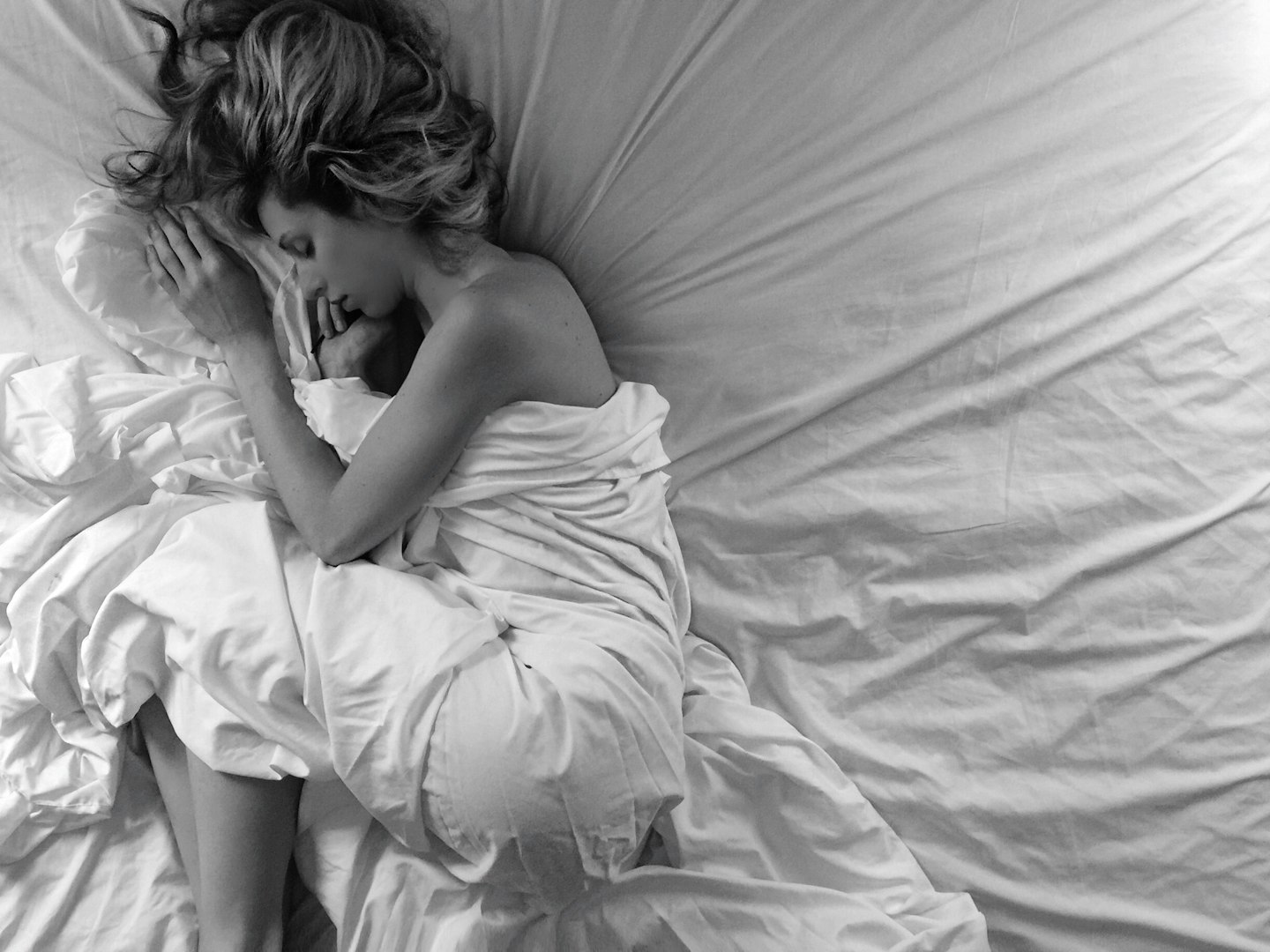Have you ever been drifting off to sleep and suddenly your body switches or jolts? Or dreamt that you're falling so you kick out and wake yourself up?
Or do you ever get a twitchy eyelid and can’t make it stop? And what about dark circles and morning breath?
Our body has a lot of odd sleep-related quirks that we can’t explain (or never bothered to ask about), but we have found some answers, and they're actually quite fascinating.
Why do I jump or switch when I’m falling asleep?
Throughout the night our body passes through various stages of sleep, according to sleep experts at The London Clinic. The first half of the night, as we pass from a light slumber into a deep sleep, is non-dream sleep, and the second half of the night we are in REM (rapid eye movement) sleep, which is when we tend to dream as we are closer to consciousness.
During REM sleep our muscles become paralysed, however if we have irregular sleeping patterns, or are tired or stressed, our sleep cycle becomes disrupted. This means that your body can enter REM sleep before it is ready, and can cause your muscles to jolt and jerk as they aren’t in the right relaxed state. According to Professor Gaby Badre, these erratic contractions are called hypnic myoclonia, and being in this state could also cause you to have vivid dreams.
What is sleep paralysis and what causes it?
Some people also suffer with sleep paralysis, which is when you are awake but you're body is asleep and paralysed, meaning you can't move or speak. It lasts only minutes or seconds but sufferers of sleep paralysis find it very frightening.
According to the NHS, sleep paralysis is when REM sleep occurs while you are awake. Causes include sleep deprivation, insomnia and narcolepsy, which disrupts the sleeping pattern.

Why do I get a twitchy eye when I’m tired?
If you’ve ever experienced the bizarre sensation of your eyelids twitching, it was probably because you were tired, stressed or had been drinking a lot of alcohol. This is because the sympathetic nervous system, which controls involuntary activities, is sent into overdrive by the above factors, causing the eyelids to spasm. These lifestyle changes effect the eyelids because the muscles in them are very delicate and therefore susceptible to twitching. This condition is called myokymia and isn’t actually harmful, but getting a lot of sleep with alleviate the twitching.
Why do I get dark circles under my eyes when I'm tired?
Contrary to what we may believe, dark circles are not only caused by fatigue, but can worsen due of a variety of different reasons, including allergies, genetics, stress, eczema and dehydration.
Dr Justine Hextall explains that when you are dehydrated 'the underlying layer of skin is less plump, so the vessels underneath become more visible'. She says that at the end of the day our dark circles are likely to be darker due to caffeine intake causing dehydration.
Interestingly though, too much sleep can also cause dark circles...how can we win? Concealer it is.
To remedy dark circles, experts advise you to stay out of the sun and stay hydrated.
Why do I get bad breath in the morning?
Morning breath is something that cannot be avoided, annoyingly. It is caused by the mouth being dry and producing less saliva, as most of us sleep with our mouths open.
Professor Eder states, though, that food stuck between the teeth, smoking and gum disease causes a worse odour, so by tackling these factors you can rest assured that your morning breath is completely normal.
Why does my hair hurt?
It may not be a sensation that everyone is familiar with, but sometimes your ‘hair can hurt’. This bizarre affliction is actually very legitamised: as Vogue found out, there are many reasons why your hair or your scalp can hurt, namely when you’re tired, stressed or - most likely – when you’re due a hair wash.
The latter culprit - not washing your hair often enough – may seem juvenile (of course we wash our hair enough), but the science behind it does the talking. Apparently, if you don’t shampoo or condition your hair for a while, oils in your scalp accumulate around your hair shaft and can cause yeast (pityrosporum) to build up, which can then become inflamed. According to Byrdie, this is because the scalp is rich in blood supply and nerve endings, making it incredibly sensitive, and if it lacks in stimulation you are likely to feel the inflammation.
WATCH: On The Go Beauty Hacks
READ MORE: Don't Skimp On Sleep: How To Get The Rest You Need
READ MORE: This Could Be Why Women Sleep So Much Worse Than Men
READ MORE: How To Find A Concealer Palette That Works For You
